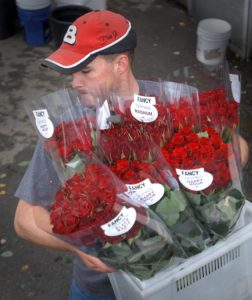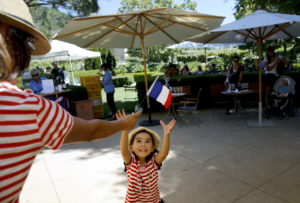Writers as diverse as William Shakespeare (“that which we call a rose by any other name would smell as sweet”) and Gertrude Stein (“a rose is a rose is a rose”) have waxed poetic on the flower that is a classic for Valentine’s Day giving.

But roses are not the same as they were way back when, or even a decade ago. Many of the jumbo-headed oddities in markets are imported from Colombia or Ecuador, bred for size or an absence of thorns, and have lost their intoxicating fragrance. For roses that look and smell like roses, thorns and all, try Neve Brothers in Petaluma.
Yet there are dozens of floral options for Valentine’s and other special days. The Victorians were big on the meaning of each type of flower, creating a language called florography. Handing your sweetheart sweet peas in those days meant “blissful pleasure.” Violets said, “Let’s take a chance on happiness,” and tulips purred “perfect lover.” While familiarity with these meanings may have been lost over time, they can be a guide to creative flower selection.
Color can also be helpful: Yellow signifies friendship, coral implies desire, purple suggests enchantment and pink signals joy.
There are simple ways to preserve the color and aroma of cut flowers once they’ve been delivered.
A teaspoon of gin in the water increases the lifespan of tulips. Many flowers (roses, peonies, sunflowers, zinnias and hyacinths) prefer hot water rather than cold for their initial plunge.
For all flowers, cut the stems a quarter-inch every other day and change the water frequently, ensuring that the Valentine’s Day sentiment lives on for a week or more.










